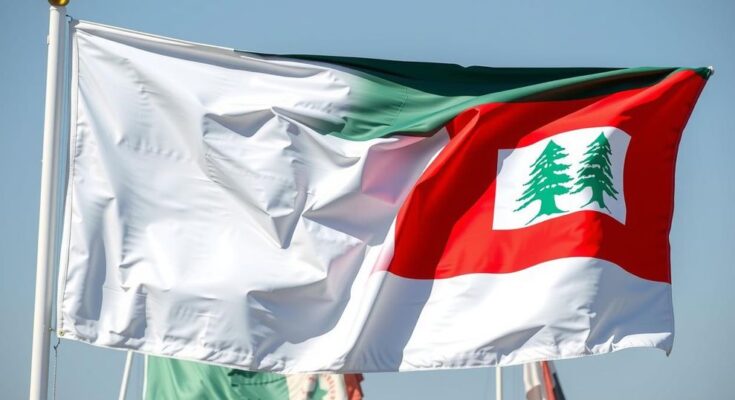The UAE is set to reopen its embassy in Lebanon after closing it for over three years due to regional tensions. This decision follows discussions between UAE President Sheikh Mohammed bin Zayed Al Nahyan and Lebanese President Joseph Aoun. The reopening symbolizes the UAE’s commitment to stability in Lebanon and reflects a thawing of diplomatic relations, coinciding with Lebanon’s agreement to extradite Abdul Rahman al-Qaradawi to the UAE.
The United Arab Emirates (UAE) is set to reopen its embassy in Lebanon after a closure lasting more than three years. This development follows a high-level delegation from the UAE’s government visiting Beirut to finalize arrangements for the embassy’s reopening. The embassy had been shuttered since October 2021, in alignment with Saudi Arabia, following critical remarks from a Lebanese official regarding the Saudi-led coalition’s role in Yemen.
The reestablishment of diplomatic ties was catalyzed by discussions between UAE President Sheikh Mohammed bin Zayed Al Nahyan and Lebanon’s newly elected President Joseph Aoun. Both leaders expressed their commitment to enhancing stability and development in Lebanon, underscoring the UAE’s dedication to supporting the Lebanese people. Concurrently, Lebanon’s Deputy Parliament Speaker, Elias Bou Saab, indicated that other countries, including Saudi Arabia and the UAE, are eager to restore diplomatic relations.
In a notable legal move, Lebanon agreed to extradite Abdul Rahman al-Qaradawi, the son of the deceased cleric Youssef al-Qaradawi, to the UAE. Al-Qaradawi was arrested in Lebanon due to comments that were seen as critical of the UAE and its allies in an online video. This act of cooperation reflects Lebanon’s changing diplomatic landscape and ongoing efforts to strengthen ties with Gulf Arab states.
The reopening of the UAE’s embassy in Beirut is expected to foster renewed faith in diplomatic relationships and encourage further international engagement with Lebanon amid its ongoing challenges.
The relationship between the UAE and Lebanon has been influenced significantly by regional dynamics and political instability in Lebanon. The UAE closed its embassy in Lebanon in October 2021, following a controversial statement from the Lebanese Minister of Information that criticized the actions of the Saudi-led coalition in Yemen. Saudi Arabia, a close ally of the UAE, has been critical of Hezbollah’s political influence in Lebanon, designating the group as a terrorist organization. The return of UAE diplomats signals a potential thawing of relations and reflects broader geopolitical shifts in the region, particularly given the recent election of Joseph Aoun as President of Lebanon. The Lebanese government’s agreement to extradite Abdul Rahman al-Qaradawi also shows its willingness to strengthen ties with the UAE and Saudi Arabia, indicating a potential pivot towards improved diplomatic relations with Gulf states, which have historically held significant influence in Lebanon’s political scene.
The imminent reopening of the UAE embassy in Lebanon marks a significant milestone in the revival of diplomatic relations between the two nations after over three years of absence. It illustrates the UAE’s commitment to contributing to Lebanon’s stability and development and reflects a broader trend of regional reconciliation. As Lebanon navigates its political landscape, the strengthening of ties with Gulf states, particularly through diplomatic engagements and legal agreements, could play a crucial role in the nation’s recovery and development efforts.
Original Source: www.newarab.com




